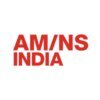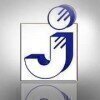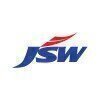Filter interviews by
Viraj Profiles Interview Questions and Answers
70 Interview questions
Cranes typically use electric motors, especially AC motors, for their efficiency and control in heavy lifting applications.
AC motors are commonly used due to their durability and efficiency.
DC motors can also be used for precise control in smaller cranes.
Synchronous motors are preferred for high-speed applications.
Example: Electric hoists in overhead cranes often use three-phase AC motors.
An induction furnace uses electromagnetic induction to heat and melt metals efficiently and precisely.
Works on the principle of electromagnetic induction, where alternating current generates a magnetic field.
The magnetic field induces eddy currents in the metal charge, causing it to heat up due to resistance.
Commonly used for melting ferrous and non-ferrous metals, such as steel and aluminum.
Induction furnaces are...
A gate-to-cathode value over 30 mohm can indicate potential issues in circuit performance and component reliability.
Higher resistance can lead to increased power loss in the circuit.
It may cause slower switching speeds in semiconductor devices.
In power electronics, it can affect the efficiency of converters.
Example: In MOSFETs, a high gate-to-cathode resistance can lead to inadequate gate drive, affecting performa...
Motor winding refers to the coils of wire in an electric motor that create magnetic fields for operation.
Motor windings are typically made of copper or aluminum wire.
They are categorized into two types: stator windings and rotor windings.
Stator windings are stationary and create a magnetic field when energized.
Rotor windings are located on the rotating part of the motor and interact with the stator's magnetic fiel...
Motor direction refers to the rotational direction of an electric motor, crucial for proper operation in various applications.
Clockwise (CW) or counterclockwise (CCW) are the two primary directions.
Direction can be changed by reversing the polarity of the supply voltage.
Example: A fan motor typically rotates in a specific direction to push air.
In conveyor systems, the motor direction determines the movement of mat...
A pump motor starter is an electrical device that controls the operation of a pump motor, ensuring safe and efficient performance.
Controls the starting and stopping of the pump motor.
Protects the motor from overload and short circuits.
Can include features like soft start to reduce inrush current.
Examples include Direct-On-Line (DOL) starters and Star-Delta starters.
A Star Delta starter is a method used to reduce the starting current of three-phase induction motors.
Reduces starting current by connecting the motor in a star configuration initially.
After a set time, switches to delta configuration for normal operation.
Commonly used for large motors (e.g., above 5 HP) to prevent electrical stress.
Helps in minimizing voltage dips in the supply system during startup.
A cooling tower is a heat rejection device that expels waste heat to the atmosphere through the cooling of a water stream.
Used in power plants, HVAC systems, and industrial processes to remove excess heat.
Types include natural draft, mechanical draft, and hybrid cooling towers.
Example: A cooling tower in a power plant helps maintain optimal operating temperatures.
They work by evaporating a portion of the water to ...
Cutting machine wiring involves connecting electrical components for safe and efficient operation of cutting tools.
Wiring includes power supply connections to the motor and control panel.
Safety features like emergency stop buttons must be wired correctly.
Control circuits may include relays and contactors for motor control.
Example: A CNC cutting machine requires precise wiring for stepper motors.
Temperature controller wiring involves connecting sensors, controllers, and actuators for precise temperature regulation.
Connect the temperature sensor (e.g., thermocouple) to the controller's input terminals.
Wire the controller's output to the actuator (e.g., relay or contactor) that controls the heating or cooling element.
Ensure proper grounding to prevent electrical noise interference.
Use shielded cables for se...
Viraj Profiles Interview Experiences
85 interviews found
I appeared for an interview in Jan 2025.
Aptitude tests assess your logical reasoning, numerical skills, and problem-solving abilities. Practice regularly to improve your performance and confidence.
(5 Questions)
- Q1. Tell me about yourself.
- Q2. Tell me about your family
- Q3. Why do you want this job?
- Q4. * "Can you give an example of a time you solved a problem?
- Ans.
I solved a conflict between team members by facilitating open communication and finding a compromise.
Identified the root cause of the conflict
Encouraged open and honest communication between team members
Facilitated a meeting to discuss the issues and find a compromise
Implemented a solution that satisfied all parties involved
- Q5. What are your strengths?
- Ans.
My strengths include strong communication skills, attention to detail, and ability to work well in a team.
Strong communication skills - able to effectively convey information and ideas
Attention to detail - meticulous in completing tasks accurately
Teamwork - collaborate well with others to achieve common goals
Interview Preparation Tips
I appeared for an interview in Jan 2025.
(2 Questions)
- Q1. Tell me about yourself.
- Q2. Tell me about your family
(2 Questions)
- Q1. What motivates you to pursue this job?
- Q2. What do you consider to be your strengths?
- Ans.
My strengths include strong communication skills, attention to detail, and ability to work well in a team.
Strong communication skills - able to effectively convey information and ideas
Attention to detail - meticulous in completing tasks accurately
Teamwork - collaborate well with others to achieve common goals
Aptitude tests assess your logical reasoning, numerical skills, and problem-solving abilities.
Interview Preparation Tips
I appeared for an interview in May 2025, where I was asked the following questions.
- Q1. Electrical maintenance engineer
- Q2. What's this maintenance
- Ans.
This refers to the systematic approach to maintaining electrical systems to ensure reliability and efficiency.
Preventive Maintenance: Regular inspections and servicing to prevent failures, e.g., replacing worn-out components.
Predictive Maintenance: Using data analysis tools to predict when maintenance should be performed, e.g., vibration analysis on motors.
Corrective Maintenance: Repairing equipment after a failure has...
- Q3. What's this Star delta stater
- Ans.
A Star Delta starter is a method used to reduce the starting current of three-phase induction motors.
Reduces starting current by connecting the motor in a star configuration initially.
After a set time, switches to delta configuration for normal operation.
Commonly used for large motors (e.g., above 5 HP) to prevent electrical stress.
Helps in minimizing voltage dips in the supply system during startup.
- Q4. What's this Motor vibration analysis
- Ans.
Motor vibration analysis assesses motor health by measuring vibrations to identify issues like misalignment or imbalance.
Vibration analysis helps detect mechanical issues early, preventing costly downtime.
Common causes of vibration include misalignment, imbalance, and bearing wear.
For example, a misaligned motor may show increased vibration at specific frequencies.
Regular monitoring can extend motor life and improve ef...
- Q5. What's this Motor winding
- Ans.
Motor winding refers to the coils of wire in an electric motor that create magnetic fields for operation.
Motor windings are typically made of copper or aluminum wire.
They are categorized into two types: stator windings and rotor windings.
Stator windings are stationary and create a magnetic field when energized.
Rotor windings are located on the rotating part of the motor and interact with the stator's magnetic field.
Exa...
- Q6. What's this Pump motor stater
- Ans.
A pump motor starter is an electrical device that controls the operation of a pump motor, ensuring safe and efficient performance.
Controls the starting and stopping of the pump motor.
Protects the motor from overload and short circuits.
Can include features like soft start to reduce inrush current.
Examples include Direct-On-Line (DOL) starters and Star-Delta starters.
- Q7. What's this Colling tower
- Ans.
A cooling tower is a heat rejection device that expels waste heat to the atmosphere through the cooling of a water stream.
Used in power plants, HVAC systems, and industrial processes to remove excess heat.
Types include natural draft, mechanical draft, and hybrid cooling towers.
Example: A cooling tower in a power plant helps maintain optimal operating temperatures.
They work by evaporating a portion of the water to cool ...
- Q8. What's this maintenance contractor
- Ans.
A maintenance contractor is a specialized service provider responsible for the upkeep and repair of electrical systems and equipment.
They ensure compliance with safety standards and regulations.
Examples include HVAC maintenance, electrical panel inspections, and generator servicing.
They may provide emergency repair services to minimize downtime.
Contractors often have specialized skills in areas like PLC programming or ...
- Q9. What's this Motor sequence
- Ans.
Motor sequence refers to the order of operations in starting and controlling an electric motor.
1. Power Supply: Ensure the motor is connected to a suitable power source.
2. Start Sequence: Initiate the motor using a start button or control panel.
3. Acceleration: The motor gradually increases speed to its rated RPM.
4. Running Condition: Monitor for any abnormal vibrations or temperatures.
5. Stopping Sequence: Use the sto...
- Q10. What's this Motor direction
- Ans.
Motor direction refers to the rotational direction of an electric motor, crucial for proper operation in various applications.
Clockwise (CW) or counterclockwise (CCW) are the two primary directions.
Direction can be changed by reversing the polarity of the supply voltage.
Example: A fan motor typically rotates in a specific direction to push air.
In conveyor systems, the motor direction determines the movement of material...
- Q11. What's this eot crane
- Ans.
An EOT crane, or Electric Overhead Traveling crane, is a type of crane used for lifting and moving heavy loads in industrial settings.
EOT cranes are commonly used in warehouses and manufacturing plants.
They consist of a hoist, trolley, and bridge that moves along elevated tracks.
Examples include bridge cranes and gantry cranes, which are variations of EOT cranes.
They are powered by electric motors, providing efficient ...
- Q12. What's this farnesh tempreture
- Ans.
Farnesh temperature refers to the temperature at which a material's properties change, often used in electrical maintenance contexts.
Farnesh temperature is crucial for understanding thermal limits in electrical components.
For example, insulation materials have specific farnesh temperatures to prevent breakdown.
Monitoring farnesh temperature helps in predicting equipment failures.
In motors, exceeding farnesh temperature...
- Q13. What's this tempreture controller wiring
- Ans.
Temperature controller wiring involves connecting sensors, controllers, and actuators for precise temperature regulation.
Connect the temperature sensor (e.g., thermocouple) to the controller's input terminals.
Wire the controller's output to the actuator (e.g., relay or contactor) that controls the heating or cooling element.
Ensure proper grounding to prevent electrical noise interference.
Use shielded cables for sensor ...
- Q14. What's this cutting machine wiring
- Ans.
Cutting machine wiring involves connecting electrical components for safe and efficient operation of cutting tools.
Wiring includes power supply connections to the motor and control panel.
Safety features like emergency stop buttons must be wired correctly.
Control circuits may include relays and contactors for motor control.
Example: A CNC cutting machine requires precise wiring for stepper motors.
Interview Preparation Tips
I applied via Walk-in and was interviewed in Oct 2024. There was 1 interview round.
(3 Questions)
- Q1. How to check the motor
- Ans.
To check the motor, you can perform various tests and inspections to ensure it is functioning properly.
Check for any physical damage or wear on the motor casing
Inspect the wiring connections for any loose or damaged wires
Measure the voltage and current going into the motor to ensure it is within the specified range
Test the motor's insulation resistance to check for any faults
Run the motor under load to see if it operat...
- Q2. How to do power analysis
- Ans.
Power analysis involves measuring and analyzing the electrical power consumption of a system or device.
Identify the components of the system or device that consume power.
Measure the current and voltage across these components using appropriate instruments.
Calculate the power consumption using the formula P = VI, where P is power, V is voltage, and I is current.
Analyze the power consumption data to identify any ineffici...
- Q3. What is tranfamer
- Ans.
A transformer is a device that transfers electrical energy between two or more circuits through electromagnetic induction.
Transformers are used to increase or decrease voltage levels in electrical circuits.
They consist of two coils of wire, known as the primary and secondary coils.
Examples of transformers include power transformers used in electrical substations and voltage transformers in electronic devices.
Interview Preparation Tips
I applied via Walk-in and was interviewed in Oct 2024. There was 1 interview round.
(3 Questions)
- Q1. What's is tranfamer
- Q2. What is Motor analysis
- Ans.
Motor analysis involves studying the performance, efficiency, and characteristics of electric motors.
Motor analysis includes evaluating the electrical and mechanical properties of a motor.
It involves testing the motor under different operating conditions to determine its efficiency and performance.
Motor analysis helps in identifying any faults or issues in the motor and optimizing its operation.
Common techniques used i...
- Q3. What is vibration analysis
Interview Preparation Tips
I applied via Campus Placement
(1 Question)
- Q1. Why do you want to join out organisation
- Ans.
I am impressed by the company's commitment to innovation and growth, and I believe my skills and experience align well with the organization's values and goals.
I admire the company's track record of success and industry reputation
I am excited about the opportunity to contribute to a dynamic and forward-thinking team
I see potential for personal and professional growth within the organization
Interview Preparation Tips
(2 Questions)
- Q1. Pump main tenec
- Q2. Machine maintenance
(2 Questions)
- Q1. Machanical work
- Q2. Crean maintenance
(2 Questions)
- Q1. No more tough Questions
- Q2. Measurement basis and about machine details
(1 Question)
- Q1. Any type , like as personal details, measurement, machines
Interview Preparation Tips
- Q1. Work experience
- Q2. What you know about the material steel?
It was including current affairs, logical thinking, and mainly communication skills
(2 Questions)
- Q1. Not applicable -no need to mention
- Q2. Not applicable
Top trending discussions






Viraj Profiles Interview FAQs
The duration of Viraj Profiles interview process can vary, but typically it takes about less than 2 weeks to complete.
Tell us how to improve this page.
Viraj Profiles Interviews By Designations
- Viraj Profiles Electrical Engineer Interview Questions
- Viraj Profiles HR Intern Interview Questions
- Viraj Profiles Front Office Executive Interview Questions
- Viraj Profiles Management Trainee Interview Questions
- Viraj Profiles Senior Engineer Interview Questions
- Viraj Profiles Assistant Manager Interview Questions
- Viraj Profiles Executive Engineer Interview Questions
- Viraj Profiles Mechanical Engineer Interview Questions
- Show more
Interview Questions for Popular Designations
Overall Interview Experience Rating
based on 80 interview experiences
Difficulty level
Duration
Interview Questions from Similar Companies
Viraj Profiles Reviews and Ratings
based on 1k reviews
Rating in categories
|
Assistant Engineer
213
salaries
| ₹1.8 L/yr - ₹4.6 L/yr |
|
Production Engineer
157
salaries
| ₹1.9 L/yr - ₹5.4 L/yr |
|
Assistant Manager
138
salaries
| ₹5.5 L/yr - ₹12 L/yr |
|
Senior Engineer
125
salaries
| ₹3.5 L/yr - ₹8 L/yr |
|
Engineer
116
salaries
| ₹2.3 L/yr - ₹5.5 L/yr |

Tata Steel

JSW Steel

Jindal Steel and Power

ArcelorMittal Nippon Steel
- Home >
- Interviews >
- Viraj Profiles Interview Questions













